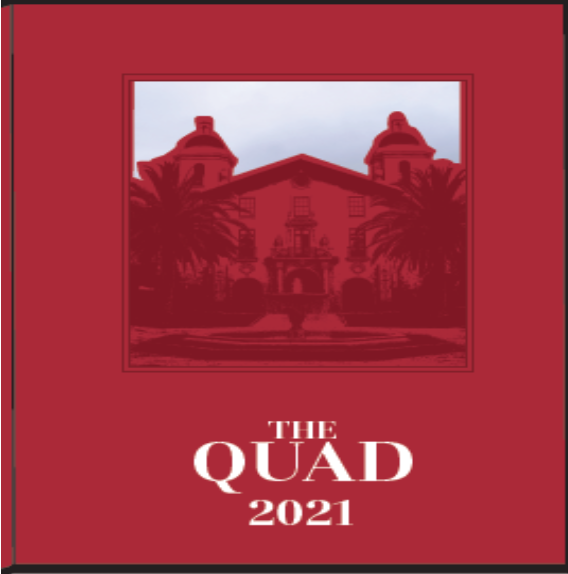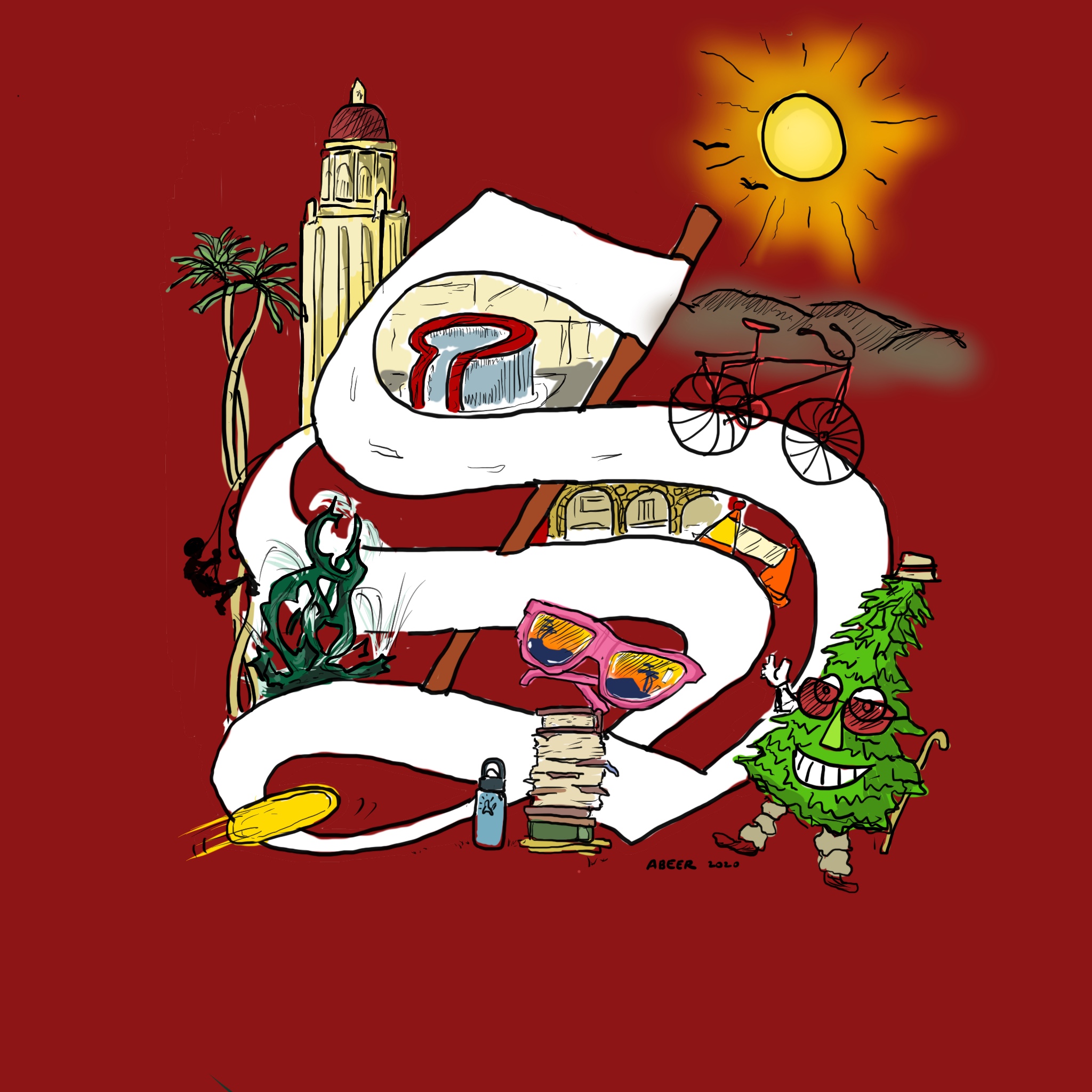
By Sarah Xu
This article contains discussions of disordered eating that may be troubling to some readers.
As I sat at the table eating a scoop of my favorite Häagen-Dazs vanilla ice cream, I recognized the sound of my mother’s slipper-laden footsteps as she slowly inched into the kitchen.
After judgingly staring me down as I took another bite, she casually remarked: “你长胖了.” You are getting fat. Concern undergirding her voice, she warningly added, “你应该注意一点.” You really need to watch out.
To be clear, my mother’s worries were not medical. Nonetheless, like many other Asian American youth I have talked to, the phenomenon of immigrant parents habitually commenting on our weight is nothing out of the ordinary.
Admittedly, I did gain some weight over the course of junior and senior year, likely due to growing academic stress and general hecticness. However, I hadn’t truly thought about or noticed my physical changes until my parents began pointing them out to me — and they weren’t subtle about it.
Fat-shaming isn’t seen in a negative light like it often is in the West; these remarks and practices are incredibly banal in many Asian cultures where especially for young women, body size is directly related to one’s personal character and propensity for success. Thus, I don’t blame my parents for galvanizing my struggles; the overwhelming pressures to fit into the socially acceptable mold of beauty, as well as internalized racism that drives so many Asian Americans to cater to Eurocentric ideals, are the broader social patterns at the heart of these issues that ought to be scrutinized.
Sociocultural expectations compounded with the widespread rhetoric of getting fit during quarantine propelled me to make the lifestyle changes I deemed necessary in pursuit of a more refined physical appearance. While still living with my family, these alterations started rather small. For one, I stopped going for boba every other day and began taking extended walks around the neighborhood.
However, I wasn’t seeing any progress. As someone who has always relied on material indicators of accomplishment as a form of motivation and validation for my efforts, seeing the same numbers of the scale was disheartening.
Seeking fast, concrete results, I began cutting out rice from my daily meals, a component foundational to Chinese cuisine, framing the carbohydrate as devoid of substance. Disavowing meat allowed me to further limit the types of food I could eat, especially given how protein-centric my cultural fare tended to be. Soon, my actions were no longer about health. Rather than serving as a source of enjoyment and carefreeness, food became a calculative subject, with my daily intake needing to be meticulously planned out. Subconsciously, I noticed myself internally bargaining, attempting to “justify” certain foods only under conditions of exercise or restriction. If I chose to indulge anyway, I wrestled with residual, gnawing guilt, uncomfortable feelings I had never before attributed to food.
As a daughter of first-generation Chinese immigrants, food is so much more than nourishment. Sharing meals is an integral mode of forging and preserving familial and communal bonds. For someone who has forever grappled with the urge to integrate into mainstream American society by severing ethnic ties, folding dumplings alongside my mother and trying each of my father’s carefully crafted traditional dishes constituted my primary, most accessible form of cultural engagement and self-reconciliation. In Chinese grocery stores, I never felt out of place. Amidst the aisles of jarred sauces, seemingly endless selection of meat cuts and tanks brimming with live seafood, I can recognize every specific branded item my family members prefer. Within my fragmented strings of Chinglish, the names of Chinese dishes I have grown up eating are some of the only remaining shards of Mandarin I can still fluently enumerate.
As I slowly gave into disordered thoughts, I began resigning from the family dinner table early, firmly declaring that I was full, even though I no longer truly knew what fullness meant. Eating family style, a tradition I never before questioned, became a potent stressor. What was portion control? How was I supposed to deal with all these glistening options on the table? The guilt was twofold: both for eating and for forsaking my father’s love language of home-cooked meals. Unlike some may believe, food was still tantalizing to me; if anything, as I restricted more, I grew even more engrossed in it, alluring images of varying dishes and baked goods perpetually roaming my mind.
On the other hand, amidst general ambivalence and dysphoria over my cultural identity, regulating food became a much-needed mode of preserving control I could easily rely on. Especially during such uncertain times, I grasped onto any sense of agency over my life that I could. I began associating Chinese food with fatty meats, greasiness and overabundance; it was the antithesis of this sense of control I desperately sought. I couldn’t find the calorie counts of my dad’s home-cooked Chinese dishes on Western apps. Slowly, Chinese cuisine transformed from comfort food into fear food. When my parents picked up takeout from the local Szechuanese restaurant, I opted for a salad at the grab-n-go joint next door. I found comfort in being able to select exactly what ingredients went into my meal, accompanied by a handy nutritional calculator that tracked each component; nothing was left to the unknown. Conversely, though I didn’t realize it in the moment, as I increasingly distanced from Chinese food and daily family rituals, I was left even more helplessly untethered from my culture and consequently my sense of self. Among my countless losses including my period, hair and peace of mind, this self-alienation from my already fragile cultural attachments constituted a devastating side-effect I hadn’t anticipated.
For a long time, I never registered the problem with any of my behaviors. Amidst the ubiquity of body-shaming in Asian cultures and prevalence of disordered eating habits among so many others around me, I justified my actions beneath my cultural emphasis on discipline and self-control, believing I could channel these values that propelled me throughout my academic endeavors into ameliorating my appearance. Unknowingly, this sense of control I so urgently craved quickly dissipated as I let toxic thoughts about food paralyze my everyday life.
Many Asian cultures lack a lexicon for speaking about clinical eating disorders. In general, studies have shown that Asian Americans focus far more on somatic symptoms, overlooking or dismissing psychological concerns in medical diagnoses. Moreover, eating disorders are often seen not as medical concerns, but as symptomatic of personal failure. When my mom noticed how much weight I had lost, her solution was chiding me to eat a bit more, to gain a few more pounds then maintain it, as if I was a Build-A-Bear that could be easily altered and customized. I still recall one instance when I mentioned someone I knew that was dealing with an eating disorder, to which my mother quickly responded: “That could never be you. You love food.” She was right. I loved food — but I was terrified of showing it.
While I did not seek clinical treatment due to lack of any official diagnosis, cooking was a means of dismantling the narcotic, suffocating hold food had over me. It allowed me to reaffirm my power over food rather than letting it consume every aspect of my being. Posting pictures of the meals I carefully crafted served as my form of reincorporating the social aspect of eating back into my life. As I began living on my own and increasingly cooking for myself, I learned to gradually reintroduce Chinese cuisine into my daily life, reconnecting with this foundational aspect of my cultural identity that has inextricably sculpted my personhood. Exchanging pictures with my parents of the 鱼香茄子 (fish-fragrant eggplant) I made for dinner or the 汤圆 (glutinous rice balls) I shared with my roommates in celebration of Lunar New Year has allowed me to talk about food with them in a new, generative light, rather than one laden with shame and guilt.
While much of the discourse surrounding recovery and promoting body positivity revolves around maintaining a neutrality around food or looking at food merely as sustenance, I don’t quite align with this. I do not reject this in the sense that I don’t think binaristic conceptions of certain foods as “good” or “bad” should be deconstructed. Rather, viewing food itself as so much more than nourishment, as a means of reaffirming my cultural attachments and engagement with the world, has truly allowed me to deconstruct its stranglehold over my livelihood.
Of course, my journey is still ongoing. There are certain behaviors that I am in the active process of unlearning and internal voices I struggle to silence at times. I still yearn for the day when I can spontaneously grab drive-thru fries with my friends at 1 a.m. and not feel my entire body freeze up when my roommate casually mentions how she hasn’t eaten all day, but I have also come to accept that this healing process will only continue if I am fully, unapologetically, invested in recovery. I can’t say that I’m now able to talk openly with my parents about this subject, but after having some open, unflinchingly honest conversations, I find solace in knowing that they only want the best for me.
Chinese food has opened up contexts for healing and self-reconciliation I never believed possible. Even when hundreds of miles away, the familiar aromas of soy, ginger and black vinegar wafting through my small apartment kitchen never fail to remind me of both home and how far I’ve come.
Contact The Daily’s The Grind section at thegrind ‘at’ stanforddaily.com.





